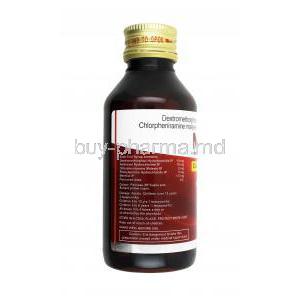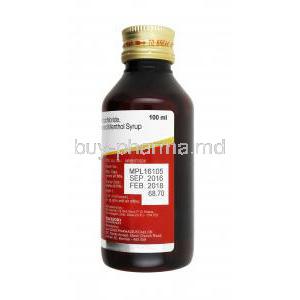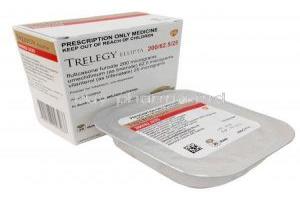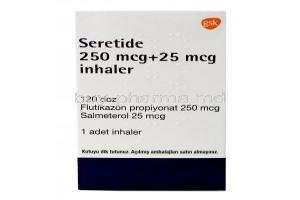Ambroxol
Uses
Ambroxol is used in the treatment of allergic disorders and the symptoms it can cause
How it Works
Ambroxol is used known as an antihistamine, it works by blocking histamine receptors and increasing the breakdown of mucus.Ambroxol works by selectively inhibiting the H1 histamine receptors therefore preventing histamine from acting on its receptors Ambroxol helps to alleviate the symptoms caused by hay fever or other allergies (such as a runny nose and watery eyes). Ambroxol has secretolytic properties, and it works by reducing the viscosity (thickness) of mucus, allowing for more of it to be removed from the body.
Common Side effects
Patients who take Ambroxol may suffer from such side effects;
Headache
Digestive upset
Dry feeling inside the mouth
Discomfort affecting the throat
Feelings of fatigue or somnolence
Constipation,
Diarrhoea,
Difficulty in urination,
Heartburn,
Itching,
Nausea,
Rash
Chlorpheniramine
Uses
Chlorpheniramine is used as a treatment for allergic disorders and the symptoms it may cause.
How it Works
Chlorpheniramine works to treat allergic disorders and its symptoms by blocking histamine from binding to its receptors, which helps to provide relief from any allergies and its symptoms.When an allergic reaction occurs, cells in the body release histamine, this causes histamine to bind to certain receptors in the body, which then leads to allergy symptoms. Chlorpheniramine helps to overcome and treat these symptoms.
Common Side effects
Patients who take Chlorpheniramine may suffer from such side effects;
Nausea,
Constipation,
Loss of appetite,
Drowsiness,
Dry mouth,
Dry throat,
Dry skin,
Headache,
Inability to empty the urinary bladder,
Nasal congestion,
Chest congestion,
Vomiting
Phenylephrine
Uses
Phenylephrine is used in the treatment of nasal congestion, pupil dilation and low blood pressure that can occur during different type of anesthesia
How it Works
Phenylephrine works by decreasing swelling in the blood vessels of the nose and ears, thus lessening discomfort and making it easier to breathe. Phenylephrine is also be used dilate the eyes prior to eye surgery.
Common Side effects
Patients who take Phenylephrine may suffer from such side effects;
Nausea,
Vomiting,
Headache,
Palpitations,
Increased blood pressure,
Increased heart rate,
Irregular Heart beat
Dextromethorphan
Uses
Dextromethorphan is used in the treatment of dry cough.
How it Works
Dextromethorphan is known as a cough suppressant, Dextromethorphan works by affecting the signals in the brain that trigger cough reflex.
Common Side effects
Some of the potential side effects of Dextromethorphan can include the symptoms below;
Sedation,
Sleepiness,
Weakness,
Dehydration,
Dizziness,
Lightheadedness,
Headache,
Sweating,
Anemia,
Fatigue,
Vomiting,
Nausea,
Edema,
Constipation,
Dry mouth.
Menthol
Uses
Menthol is used in the treatment of itching, dermatitis and eczema.
How it Works
Menthol works by activating the cold-sensitive TRPM8 receptors in the skin. Menthol, causes a feeling of coolness due to stimulation of cold receptors by inhibiting Ca++ currents of neuronal membranes. Menthol may also yield analgesic properties via kappa-opioid receptor agonism.
Common Side effects
Some of the potential side effects of Menthol can include the symptoms below;
Balance disorder,
Vomiting,
Altered heart rate,
Drowsiness,
Hypersensitivity reaction,
Nausea,
Abdominal pain,
Contact dermatitis,
Skin irritation,
Apnea,
Nystagmus,
Vertigo












